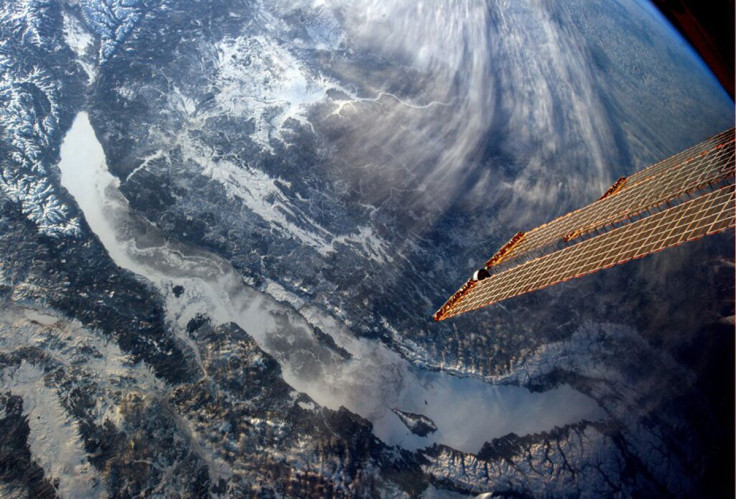Lake Baikal, World's Largest Freshwater Body, Turning Into A Swamp, Ecologists Say

Ecologists warn that Lake Baikal, the world’s oldest and deepest freshwater lake, is being turned into a swamp by thousands of tons of waste dumped by local tourist resorts and marine vessels. In response, the Russian government has reportedly launched a multi-million dollar plan to rescue the UNESCO-protected lake.
At a meeting recently held in Irkutsk, a city on the banks of the Angara River that drains the lake, ecologists said that an increasing number of alien water plant species are also causing water logging in the Siberian lake, which has been described as one of the natural wonders of the world, according to a report by Russia Today.
About 160 tons of liquid waste, reportedly produced every season in Baikal’s Chivyrkui Bay, is being dumped into the lake by tourists camps on the lake's shores, according to a local media report, which citied Baikal Environmental Wave, a Russian nonprofit. Tourist camps reportedly pass on the waste to companies that are meant to safely dispose of it. However, the vehicles often don’t reach disposal facilities and instead dump the waste into the lake or in rivers that flow into it.
But, the largest contributor to the lake’s dismal condition are reportedly ships, boats and yachts that together produce about 25,000 tons of liquid waste annually, of which only about 1,600 tons is disposed of properly, according to the report. The dumping of waste has reportedly led to a spurt in alien plant species such as Spirogyra and Elodea Canadensis, which block the lake's natural drainage system and contribute to a decline of native species.
To address the problem, the ecologists have reportedly suggested equipping garbage vehicles with monitoring devices to track where the waste is delivered, as well as introducing new technologies to clean up the lake and educating locals on conservation issues.
Previously the largest polluter of the lake was reportedly the Baikal Pulp and Paper mill, which was shut down in December 2013 after a two-decade long battle. However, the closure of the 47-year-old mill, which was Irkutsk's only major employer and accounted for 80 percent of its income, left almost 2,000 people unemployed, taking a heavy toll on the region’s economy.
Oleg Kravchuk, Russia's minister of natural resources and ecology in the Irkutsk region, at a meeting in the city last week reportedly proposed to create environmentally friendly enterprises and amended local legislation to allow the construction of plants to bottle water as well as process vegetables and fruit.
Additionally, an eco-friendly vessel called the Trofim Yaskin will reportedly deal with the problem of pollution caused by water transport vehicles, untreated sewage discharge and lakeside garbage. The vessel will reportedly be equipped with solar panels and a wind generator to power devices that can recycle sewage water into fuel, as well as recover solid waste and eliminate condensation. The project is estimated to cost over 12 million rubles or $3.2 million.
The 25-million-year old Lake Baikal is a rift lake cause by the movement of the continental shelf, in southern Siberia. It contains the greatest volume of freshwater -- about 20 percent of the world’s unfrozen surface freshwater supply -- and, with a maximum depth of 1,642 meters, it is also the deepest lake in the world.
© Copyright IBTimes 2024. All rights reserved.





















